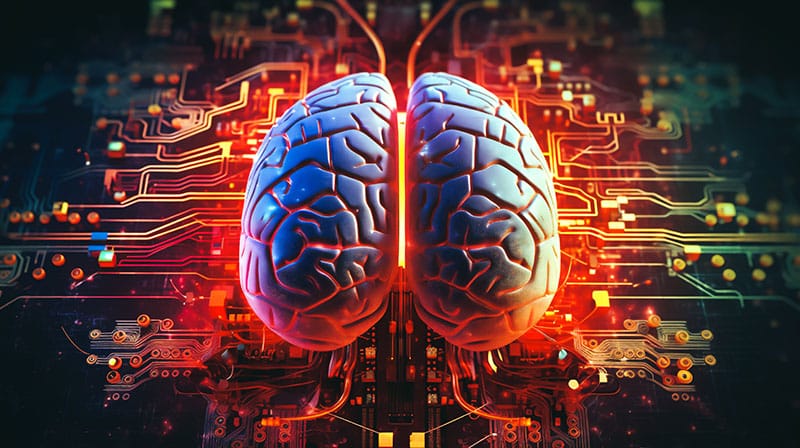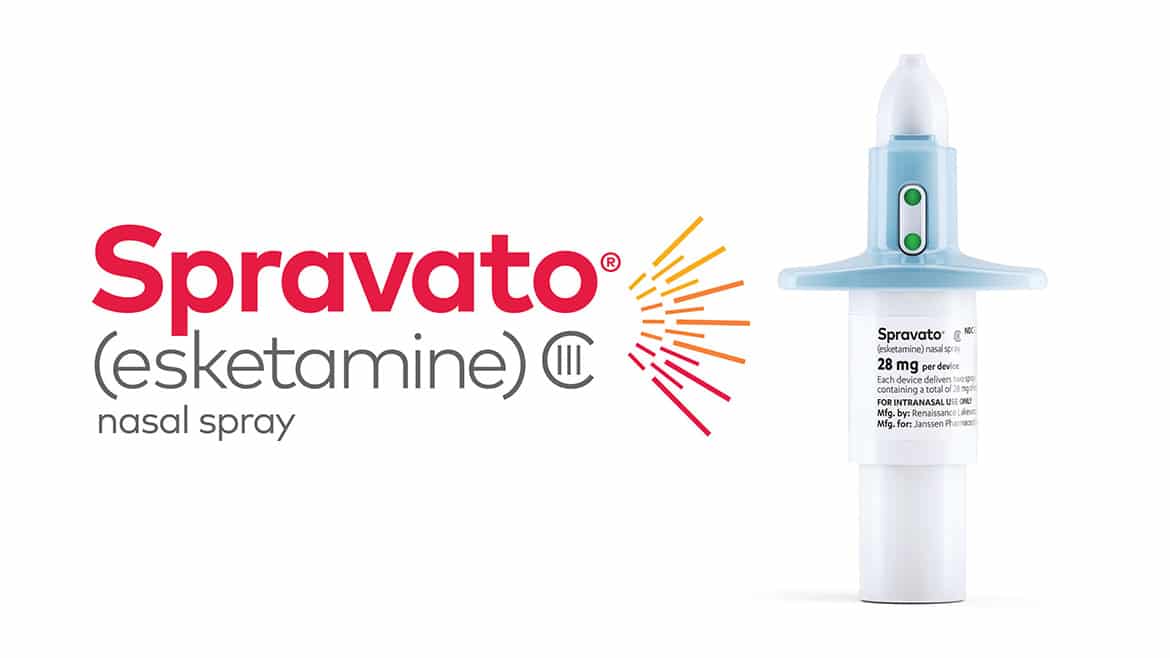Understanding how ketamine treatments work is a critical step towards grasping the future of mental health therapies. This powerful medicine, once used primarily for surgical anesthesia, has shown immense promise in treating conditions such as depression and borderline personality disorder.
In this blog post, we will delve into the intricacies of ketamine therapy. We’ll explore its unique ability to restore neuroplasticity by enhancing neuron interconnections that are often diminished in depressive states. Furthermore, we’ll look into why this treatment is particularly effective for those who have not found relief from traditional depression treatments.
We’ll also shed light on the FDA approval process regarding esketamaine use and specific instances where it proves most beneficial. As you learn more about how ketamine treatments work, you’ll see why cognitive behavioral therapy can complement these medicinal interventions effectively.
Lastly, we’ll look at potential areas of exploration for upcoming research based on current findings about ketamine and its impact on psychiatry and neuroscience fields. So let’s embark on this enlightening journey together!
Table of Contents:
- Understanding Depression and Neuroplasticity
- Ketamine: The Fast-Acting Antidepressant
- Regrowth of Synapses through Ketamine Treatment
- FDA Approval & Use Cases for Ketamine
- Cognitive Behavioral Therapy alongside Ketamine Treatment
- Future Research Directions in Depression Treatments
- Conclusion
How Ketamine Treatments Work
Understanding Depression and Neuroplasticity
Depression: affecting 17 million adults in the US, it’s like a misunderstood party guest that’s hard to kick out.
The link between neurotransmitters glutamate and GABA with depression
Depression messes with the brain’s neurotransmitters: glutamate gets too excited, while GABA itends to depress them and bring them back down. It’s all about balance between the two.
How decreased neuron interconnections contribute to depressive symptoms
Depression not only affects neurotransmitters, but also the connections between neurons, resulting in disruptive depressive symptoms. It’s like a bad phone signal between brain cells, leading to those ongoing depressive symptoms.
Ketamine: The Fast-Acting Antidepressant
Originally used as an anesthetic in the 1960s, ketamine has now become a ray of hope for those battling depression. Unlike slowpoke antidepressants, ketamine works its magic in a jiffy.
Speedy Effects of Ketamine
Forget waiting weeks or months for results. Ketamine can bring relief within 24 hours or less. It tinkers with neurotransmitters like glutamate and GABA, boosting mood and neuroplasticity.
By blocking NMDA receptors, ketamine unleashes a glutamate frenzy, activating AMPA receptors and enhancing synaptic plasticity. Say goodbye to chronic depression and hello to a brighter outlook.
Ketamine vs. Traditional Antidepressants
Rather than concentrating on serotonin like traditional antidepressants, ketamine advances neuroplasticity to a higher level. For those who have yet to experience relief, ketamine treatment may be the answer. Ready for a breakthrough? Try ketaimine treatment at Revitalist Johnson City.
Not only is ketamine faster-acting, but it may also provide longer-lasting relief. It strengthens synapses and promotes the growth of new connections between neurons. Ketamine is like a workout for the brain, boosting its capacity and resilience. Stay tuned for more mind-blowing facts.
Regrowth of Synapses through Ketamine Treatment
The intricate neuronal pathways of the human brain can become disrupted in cases of depression, but ketamine treatment has been identified as a potential solution to restore synaptic connections and provide relief. Luckily, there’s a new player in town: ketamine treatment. It’s like a superhero for your synapses, helping them regenerate and bring some much-needed relief.
Mechanism behind Synaptic Regrowth via Ketamine Treatment
Forget about those boring antidepressants that focus on serotonin and norepinephrine. Ketamine is all about glutamate, the brain’s MVP neurotransmitter for learning and plasticity. By blocking and activating certain receptors, ketamine unleashes a flood of growth factors that promote synapse formation and strengthen existing connections. Talk about a brain boost.
Now, we don’t have all the answers just yet. Researchers are still attempting to decipher precisely how ketamine produces its advantageous effects. But hey, as long as it’s helping, it’s worth a closer look
Why This Process Benefits Individuals Resistant to Other Treatments
Depression is like a stubborn puzzle, and sometimes traditional treatments just don’t cut it. But fear not, because ketamine therapy is here to save the day. Research has demonstrated that approximately 70% of those who had not responded to other forms of antidepressant treatment experienced beneficial outcomes with the utilization of ketamine. And the best part? It works fast, bringing relief within hours or days instead of weeks or months.
FDA Approval & Use Cases for Ketamine
2023 was a big year for mental health treatment with the FDA giving the thumbs up to Spravato (esketamine), a therapeutic version of ketamine. Finally, some hope for those with severe depression who were tired of antidepressants that did diddly squat.
FDA Approval Process Details Regarding Esketamine Use
The FDA doesn’t mess around when it comes to approval. They put esketamine through the wringer, making sure it’s safe and actually works for treatment-resistant depression. Turns out, it’s approved for people with major depressive disorder who tried two antidepressants and got zilch. They call it ‘treatment-resistant depression’. Clinical trials on esketamine showed it can kick depressive symptoms to the curb in hours or days, not the usual weeks.
Specific Instances Where Esketamine Proves Most Effective
Esketamine is like a superhero for those who tried everything else and failed. It’s been a game-changer for people with treatment-resistant depression. They get a dose of intranasal esketamine (in the form of a nasal spray) and an oral antidepressant, and boom, their symptoms improve in moments. It’s even being looked at as an emergency treatment for people feeling suicidal because it works so fast.
But hold your horses, esketamine isn’t for everyone. Nausea, highblood pressure, and hallucinations—these are a few of the side effects associated with this potent drug. So, it’s only given to specific cases under medical supervision.
Ketamine and other novel treatments are disrupting the mental health realm, offering new hope for those with depression. It’s like we’re finally starting to understand how to tackle depression. This presents thrilling prospects for more in-depth exploration and a heightened understanding of the human psyche and its maladies. At Revitalist Johnson City, we’re all about pushing the boundaries of mental health treatment with innovative approaches like ketamine therapy. The future looks bright for managing complex conditions like depression.
In 2023, the FDA approved esketamine (a form of ketamine) for the treatment of severe depression in individuals who have not responded to other antidepressants. Esketamine has shown promising results in quickly reducing depressive symptoms, but it is only given under medical supervision due to its powerful effects and potential side effects.
Cognitive Behavioral Therapy alongside Ketamine Treatment
Managing depression is no joke, but a multi-faceted approach can lighten the load. That’s where Cognitive Behavioral Therapy (CBT) steps in to complement ketamine treatment. CBT is like a trusty sidekick, helping patients develop new ways to handle stress and prevent relapse.
CBT’s Role in Complementing Medicinal Intervention like Ketamine
Cognitive Behavioral Therapy, according to the American Psychological Association, focuses on changing thinking or behavior patterns that cause difficulties. When combined with ketamine treatment for depression at Revitalist Johnson City, CBT can reinforce the positive changes brought about by medication.
- It boosts coping mechanisms: Ketamine works its magic on the brain, while CBT helps individuals develop better ways to handle life’s curveballs.
- It prevents relapses: By teaching patients to turn negative thoughts into positive ones, CBT reduces the risk of falling back into the dark pit of depression.
- Personalized care: With this combo, healthcare providers at Revitalist Johnson City can tailor treatments to suit individual needs, providing immediate relief and long-term mental health management.
The Implications for Long-Term Management Strategies Dealing With Chronic Conditions Like Depression
When it comes to chronic conditions like depression, hope is essential. Combining therapies like CBT with innovative treatments like ketamine offers more than just symptom reduction – it improves overall quality of life. Who wouldn’t want daily activities to be more manageable and fulfilling over time?
According to NIMH (National Institute Of Mental Health), around 17 million adults in America battle major depressive disorder each year. For those who don’t experience positive outcomes from standard antidepressants, blending cognitive behavior therapy with advanced drugs may be a major breakthrough.
Let’s take control of our mental health and build a foundation for long-term emotional wellness. Let’s redefine how we perceive and manage mental health disorders today.
Cognitive Behavioral Therapy (CBT) is a valuable complement to ketamine treatment for depression. CBT helps patients develop coping mechanisms, prevents relapses, and allows for personalized care, improving overall quality of life for those with chronic conditions like depression.
Future Research Directions in Depression Treatments
The rise of ketamine and its mind-blowing effects on depression treatment has researchers buzzing with excitement. Excited to explore this newfound realm of possibilities, we look forward to delving into the science behind ketamine’s rapid antidepressant effects.
Potential Areas for Exploration in Upcoming Research Based on Current Findings about Ketamine
According to fancy scientific studies, ketamine’s ability to stimulate neuroplasticity and synaptic regrowth is what makes it such a speedy antidepressant as does is application a a nasal spray. So, let’s dig deeper and see if other compounds can mimic this magic or if we can crank up the effects somehow. Oh, and maybe ketamine can work its wonders on anxiety disorders and PTSD too.
Hold on to your neurotransmitters, folks. Ketamine research might just turn our understanding of mental health upside down. We might find out that glutamate is the real MVP or that GABA has secret talents beyond just being inhibitory. Mind blown.
Impact of These Advancements on the Overall Field of Psychiatry and Neuroscience
The advent of ketamine as an effective antidepressant has been a catalyst for re-evaluating the established approaches to psychiatry and neuroscience. It’s like a jolt, reminding us to concentrate on brain malleability rather than fixating on serotonin amounts. Time to think outside the neurotransmitter box.
A glimmer of optimism is being offered to those who haven’t found solace in current treatments, as these new discoveries bring the promise of fresh approaches. A gleam of optimism emerging from the gloominess.
But wait, there’s more. These advancements could unlock the mysteries of the brain, from how we learn to how we remember. It’s like a backstage pass to the greatest show on Earth – the human mind.
Conclusion
Ketamine treatments: the new mood-lifting magic.
By targeting neurotransmitters glutamate and GABA, ketamine restores neuron interconnections and promotes neuroplasticity.
Get ready for rapid onset antidepressant effects that put traditional medications to shame.
But wait, there’s more! Ketamine also promotes the regrowth of synapses, making it a superhero for treatment-resistant individuals.
With FDA approval for esketamine use and exciting future research directions, ketamine treatments offer hope for those seeking relief from their symptoms.
Kathryn A. Walker is a pioneering medical researcher and psychiatrist known for her groundbreaking work in the field of mental health, particularly in the area of ketamine treatments. With a deep passion for understanding and alleviating the burden of treatment-resistant mood disorders, Kathryn has dedicated her career to investigating the therapeutic potential of ketamine.
Through her relentless efforts, she has played a pivotal role in shedding light on ketamine’s efficacy in treating conditions like depression, anxiety, and PTSD. Her research has not only transformed the way we approach mental health care but has also provided hope to countless individuals who had previously found little relief from conventional treatments.
Kathryn A. Walker’s pioneering contributions continue to shape the landscape of mental health medicine and inspire new avenues of research in the pursuit of better mental well-being for all.





